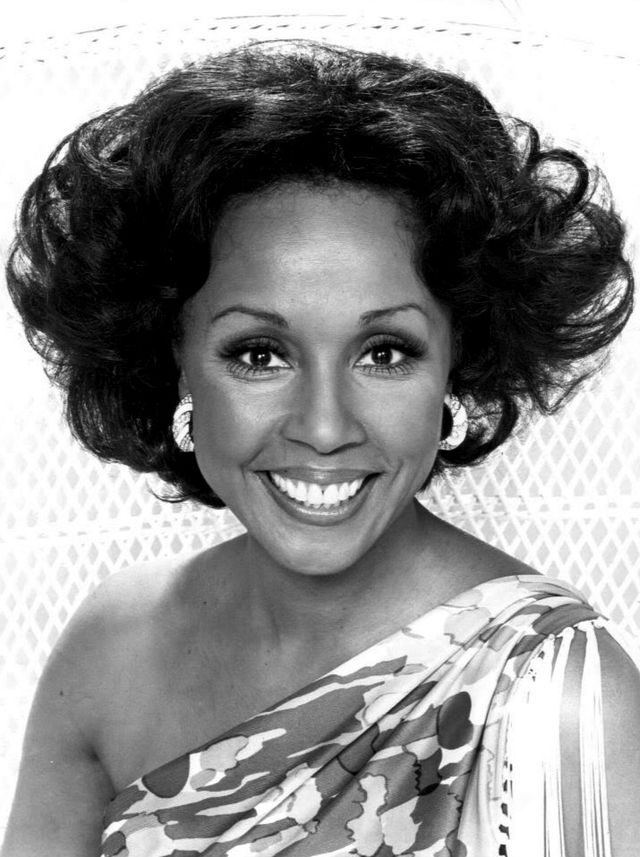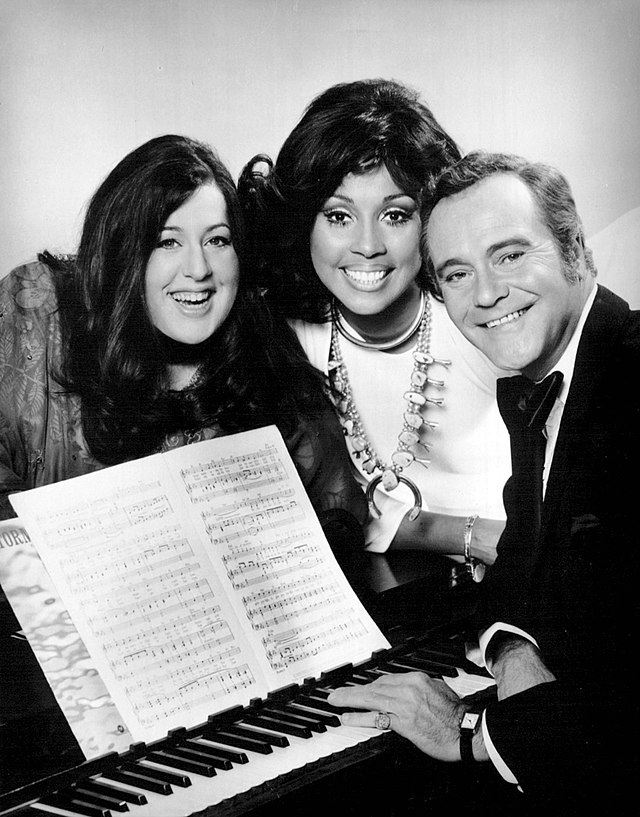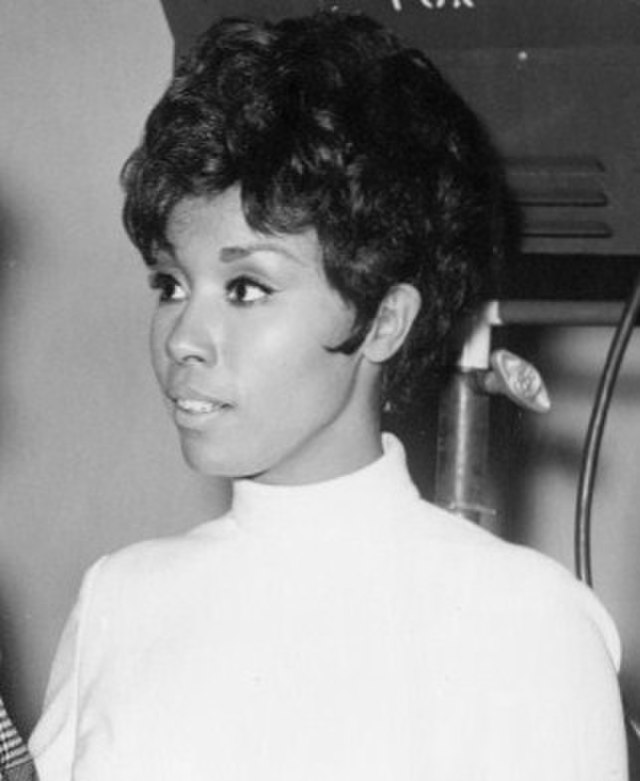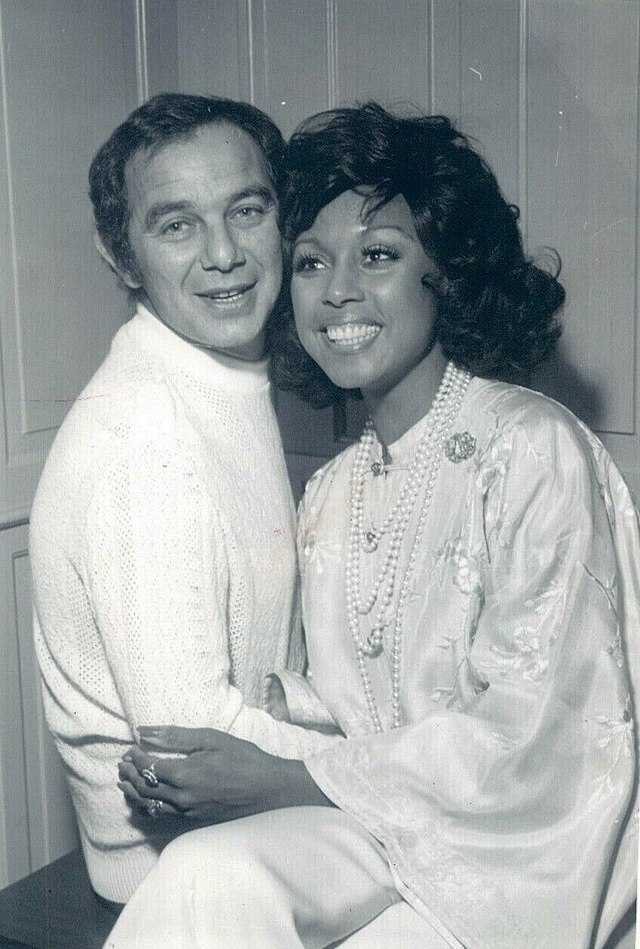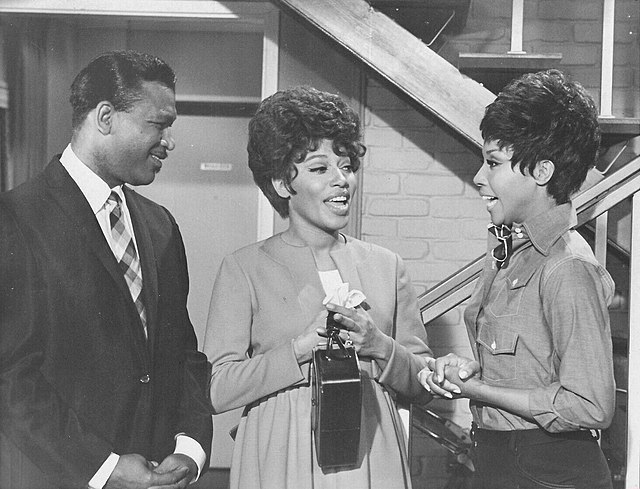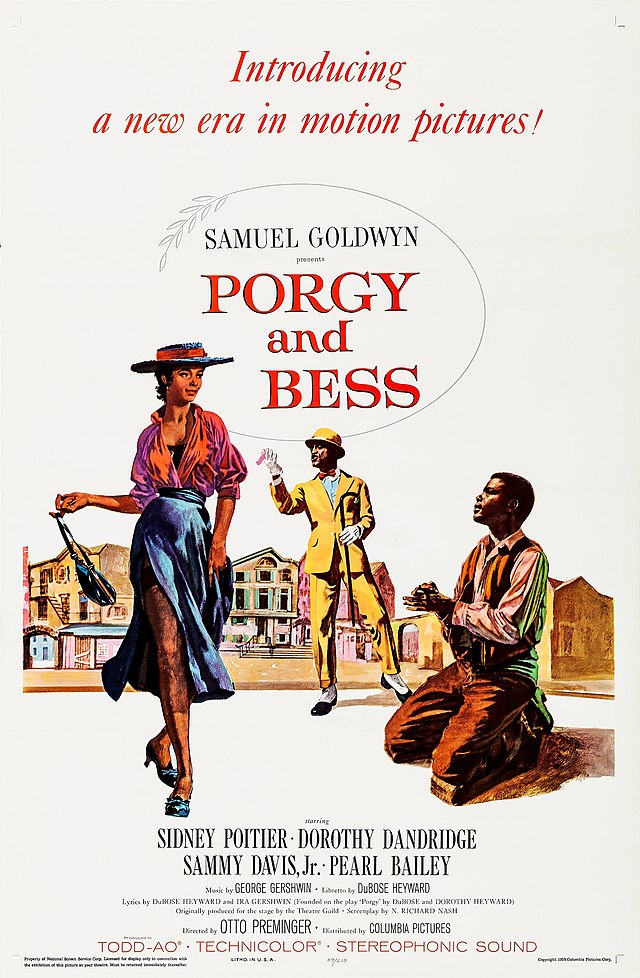Diahann Carroll
back| Full Name | Carol Diann Johnson |
| Stage Name | Diahann Carroll |
| Born | July 17, 1935 |
| Birthplace | The Bronx, New York City, New York, USA |
| Died | October 4, 2019 |
| Buried | Westwood Village Memorial Park Cemetery, Los Angeles, California, USA |
| Married to | Monte Kay (1956-1963) - Fred Glusman (1973 - Marriage annulled after a few weeks) - Robert DeLeon (1975-1977, until his death) - Vic Damone (1987-1996) |
| Children | Suzanne Kay Bamford (born September 9, 1960), with her first husband, Monte Kay. |
| Notable films | Carmen Jones (1954) - Porgy and Bess (1959) - Paris Blues (1961) - Claudine (1974) - Eve's Bayou (1997) |
Diahann Carroll
The Queen of Elegance
Diahann Carroll was a pioneering actress and singer who broke racial barriers in Hollywood. Carroll began her career in the 1950s as a singer and Broadway actress, winning a Tony Award in 1962 for No Strings.
In 1968, she made history as the first African American woman to star in a non-stereotypical role on television with Julia, earning a Golden Globe. Carroll was also Oscar-nominated for her role in Claudine (1974).
Known for her elegance and grace, she became a TV icon with her role as Dominique Deveraux on Dynasty in the 1980s. Her career spanned over six decades, during which she championed greater representation and diversity.
Related
Diahann Carroll (1935 – 2019)
Biography and Movie Career
Diahann Carroll was born Carol Diann Johnson on July 17, 1935, in The Bronx, New York City. She was the daughter of John Johnson, a subway conductor, and Mabel Faulk Johnson, a nurse. The family moved to Harlem when she was an infant, where Carroll attended Music and Art High School, a prestigious institution that nurtured her early interest in the arts.
Career Beginnings: Carroll began her career as a singer and model, participating in talent shows such as "Chance of a Lifetime" and working as a model for Ebony magazine. Her television debut came on “The Arthur Godfrey Talent Scouts” show. Carroll's Broadway debut was in the musical "House of Flowers" in 1954, written by Truman Capote, and she quickly became known for her beauty, poise, and talent.
Breakthrough Role in "Julia": Carroll made history in 1968 by becoming the first African American woman to star in a non-stereotypical role on network television in the groundbreaking sitcom "Julia." Carroll played Julia Baker, a widowed nurse raising a young son. The show was a hit, and Carroll won a Golden Globe Award for Best TV Star – Female and earned an Emmy nomination. "Julia" ran from 1968 to 1971 and broke significant ground in television history.
Film and Theater Work: In addition to her iconic role in "Julia," Carroll had a successful film career. She earned an Academy Award nomination for her performance in the film "Claudine" (1974), where she portrayed a single mother struggling to raise her children in Harlem. Her theater career flourished as well, with notable performances in musicals such as "No Strings," which earned her a Tony Award in 1962, making her the first African American woman to win the award for Best Actress in a Musical.
Later Career: In the 1980s, Carroll gained renewed attention for her role as Dominique Deveraux, a glamorous and scheming diva, on the popular primetime soap opera "Dynasty." This role made her one of the first African American actresses to have a regular role on a nighttime drama series. Carroll continued to work in television, film, and theater into her later years, including appearances in shows like "A Different World," "Grey's Anatomy," and "White Collar."
Personal Life: Carroll was known for her elegance and sophistication, which extended to her personal life. Her marriages were a topic of public interest, with her first marriage to Monte Kay, a record producer, resulting in her only child, Suzanne. Her subsequent marriages ended in divorce, and her second husband, Robert DeLeon, died tragically in a car accident.
Death: Diahann Carroll passed away on October 4, 2019, at the age of 84 after a long battle with breast cancer. She is remembered as a trailblazer for African American actresses, her contributions to television, film, and theater, and her advocacy for greater diversity in Hollywood.
Legacy: Diahann Carroll left an indelible mark on the entertainment industry, paving the way for future generations of African American artists. Her work in breaking down racial barriers and challenging stereotypes remains influential, and her roles in "Julia," "Claudine," and "Dynasty" are celebrated for their cultural significance and impact. Her elegance, talent, and pioneering spirit continue to inspire many in the world of entertainment.
Johny Carson interviews Diahann Carroll:
Elegant Acting Style of Diahann Carroll:
Elegance and Grace:
Carroll was often described as the epitome of elegance, and this quality was a hallmark of her acting style. She carried herself with a natural grace, both in her movement and her demeanor, which translated into her performances. Whether she was playing a glamorous socialite on "Dynasty" or a struggling single mother in "Claudine," Carroll's presence was always polished and refined. Her posture, her careful attention to physical expressiveness, and her poised delivery of dialogue gave her characters an air of sophistication and dignity, regardless of their social or economic status.
Emotional Depth and Authenticity:
One of Carroll's strengths was her ability to convey deep emotions with authenticity. She could tap into the inner life of her characters, presenting their joys, fears, and struggles with a naturalism that made her performances relatable and compelling. In "Claudine," for example, her portrayal of a single mother juggling the demands of raising six children while seeking personal happiness was both heart-wrenching and inspiring. Carroll’s ability to show vulnerability and strength simultaneously allowed audiences to connect with her characters on a profound level. Her emotional range, from subtle, quiet moments to more dramatic expressions, was always carefully calibrated to suit the narrative and her character’s journey.
Nuanced Dialogue Delivery:
Carroll's voice was a powerful tool in her acting repertoire. She had a melodious, controlled tone that could be warm and comforting or firm and authoritative, depending on the demands of the scene. Her enunciation was clear, and she often used pauses effectively, giving weight to her words and allowing the audience to feel the significance of her lines. In dramatic roles, her dialogue delivery was deliberate and measured, adding gravitas to her characters. In lighter, comedic roles, she could inject her lines with wit and charm, demonstrating her versatility as an actress.
Subtlety and Restraint:
Carroll's acting was marked by a subtlety that avoided overt melodrama. She had a refined sense of restraint, choosing to underplay certain moments to create a more realistic and intimate connection with the audience. This restraint allowed her to convey complex emotions with just a glance, a slight change in facial expression, or a small gesture, making her performances richly layered and evocative. Her subtlety was particularly effective in roles where she needed to portray inner conflict or silent suffering, as her nuanced approach drew the audience into her character's internal struggles.
Commanding Presence:
Despite her ability to play vulnerable characters, Carroll possessed a commanding on-screen presence that made her a natural fit for roles of authority and power. Her portrayal of Dominique Deveraux in "Dynasty" is a prime example of this quality. As a sophisticated, wealthy, and assertive woman, Carroll's performance was magnetic, filled with confidence and a sense of control. Her ability to command attention without overacting made her stand out in ensemble casts and complex narratives, establishing her as a leading figure in both television and film.
Versatility Across Genres:
Throughout her career, Carroll showcased her versatility by taking on a wide range of roles across different genres, from musicals and comedies to dramas and thrillers. Her early work in musicals like "Carmen Jones" and "Porgy and Bess" highlighted her vocal talent and stage presence, while her roles in films like "Claudine" and "Eve's Bayou" displayed her dramatic chops. Carroll's ability to transition seamlessly between genres without losing the core of her acting style—her elegance, emotional depth, and authenticity—demonstrated her adaptability and broad appeal as an actress.
Cultural and Social Impact:
Carroll's acting style also had a significant cultural and social impact. As one of the first African American actresses to break away from stereotypical roles, she brought a sense of normalcy and relatability to African American characters in mainstream media. Her performances were often infused with a quiet activism, portraying African American women with dignity, intelligence, and complexity. Through her work, Carroll helped to redefine the representation of African American women on screen, paving the way for future generations of actors.
Diahann Carroll's acting style was a unique blend of sophistication, emotional intelligence, and understated power. Her ability to bring grace and depth to her characters made her a beloved and respected figure in the entertainment industry. Whether on stage, television, or film, Carroll’s performances left a lasting impression, not only for their artistic merit but also for their cultural significance. Her legacy endures as a testament to the power of talent combined with a commitment to authentic and dignified representation.
Groundbreaking role in TV Show Julia
The television show Julia was a groundbreaking American sitcom that aired on NBC from September 17, 1968, to March 23, 1971. It starred Diahann Carroll as Julia Baker, a widowed African American nurse raising her young son, Corey, played by Marc Copage. The show was created by Hal Kanter and is widely recognized for its role in changing the portrayal of African Americans on American television. Here’s an overview of the show and its significance:
Overview of Julia
- Premise: The series centers on Julia Baker, a nurse working at the medical office of an aerospace company. She is a single mother, raising her young son Corey after the death of her husband, an Air Force pilot, in the Vietnam War. The show focuses on Julia's life as she balances her professional responsibilities with her personal life and the challenges of being a single mother. Julia portrayed her as a competent and confident professional and mother, which was a departure from the domestic roles often seen in television at the time.
- Setting and Format: The sitcom took
place in a modern, urban setting, featuring Julia’s interactions with her son, her colleagues, and her friends. It included light-hearted humor, family-oriented themes, and addressed issues like parenting, work-life balance, and relationships. Each episode was approximately 30 minutes long.
- Key Characters:
- Julia Baker (Diahann Carroll): The protagonist, a widowed nurse, who is independent, intelligent, and caring.
- Corey Baker (Marc Copage): Julia’s lovable and inquisitive son, around whom much of the show's heart and humor revolved.
- Dr. Morton Chegley (Lloyd Nolan): Julia's employer, a kind-hearted and somewhat gruff physician at the medical office.
- Marie Waggedorn (Betty Beaird): Julia's neighbor and friend, often seen interacting with Julia and Corey.
Significance and Impact:
- Breaking Racial Barriers: Julia was the first American television series to feature an African American woman in a non-stereotypical leading role, without being portrayed as a domestic worker or in a subservient position. This was a significant departure from the limited roles that African American actors had been offered in the past. Diahann Carroll’s role as a professional woman living a middle-class lifestyle was a landmark moment in television history.
- Positive Representation: By portraying Julia as a well-rounded, educated, and competent woman, the show challenged prevailing stereotypes about African Americans. It presented a new image to audiences, demonstrating that African Americans could lead lives similar to the broader, white middle class and contribute positively to society.
- Cultural and Social Impact: Julia aired during the Civil Rights Movement, a time of significant social change in the United States. The show's depiction of an African American family living a middle-class life and dealing with everyday issues was groundbreaking. It helped to normalize the presence of African Americans on television and played a role in shifting public perceptions about race.
- Critical Reception and Controversy: While Julia was praised for its positive portrayal and for providing a platform for an African American actress in a leading role, it also faced criticism from some quarters. Critics argued that the show avoided addressing the harsh realities of racism and social injustice that many African Americans faced. Some felt it presented an overly sanitized view of African American life, not reflecting the struggles associated with the Civil Rights Movement.
- Awards and Recognition: Diahann Carroll won a Golden Globe Award for Best TV Star – Female in 1969 for her role as Julia. She was also nominated for an Emmy Award for her performance. The show itself was well-received by audiences and had solid ratings throughout its run, making it a notable success in television history.
Legacy:
Julia paved the way for future television shows featuring African American characters in leading and diverse roles. Its success demonstrated that audiences were ready to see different kinds of stories on television, helping to open doors for other shows that would explore more complex and varied aspects of African American life. The series remains a significant part of television history, not only for its entertainment value but also for its role in shaping the landscape of American media and representation. Diahann Carroll's portrayal of Julia Baker stands as a milestone in the ongoing journey toward greater diversity and inclusion in entertainment.
Memorable Quotes from Diahann Carroll
- On Her Career and Breaking Barriers:
“I like to think I opened doors for other women, although that wasn’t my original intention.”
This quote reflects Carroll’s recognition of her role as a trailblazer in the entertainment industry, paving the way for other African American women.
- On Her Role in "Julia":
“I was very aware that I was representing a population that was not represented on television.”
Carroll spoke often about the importance of her groundbreaking role in "Julia" and the significance of portraying a positive image of an African American woman on television.
- On the Impact of Her Work:
“We were trying to make a point. We were trying to make a very important point — that a black woman could bring a very important segment of the community into the living room and have them relate to this woman.”
This quote highlights her commitment to using her platform to bring about cultural and social change.
- On Acting and Fame:
“The most important thing that a woman can have—next to talent, of course—is her hairdresser.”
Carroll’s wit and humor are evident in this quote, showing her appreciation for the glamour of show business and the importance of personal presentation.
- On Diversity in Hollywood:
“I considered myself very fortunate to be in the world of entertainment at a time when, if you said something was going to happen, it would happen.”
Carroll often reflected on the opportunities and challenges she faced as one of the few African American women in Hollywood during her time.
- On Her Personal Philosophy:
“I’m a survivor. I’m like everyone else. I am determined to survive. I’m not the lady who died last week or last year. I am the lady who has survived, no matter what happened to me.”
Carroll’s resilience and strength are evident in this quote, encapsulating her spirit and determination throughout her life and career.
- On Being a Role Model:
“We all want to see ourselves on the screen, and I can say with pride that I think I’ve been able to present an image to the public that is understandable, that is equal to the image of any other human being.”
Carroll understood her influence and the responsibility that came with being a role model for African Americans, particularly African American women.
- On Legacy and Purpose:
“If you’re not invited to the party, throw your own.”
This empowering quote speaks to Carroll’s belief in creating one’s own opportunities and not waiting for others to define one’s path.
- On Her Personal and Professional Life:
“I have had the most incredible life. I've been very blessed. I never thought in a million years that I would be blessed with the opportunities that I've had.”
Carroll often expressed gratitude for her career and the opportunities she was given, acknowledging both her talent and the fortuitous circumstances of her success.
- On Overcoming Challenges:
“There is a lot of mediocrity being celebrated, and a lot of wonderful talent is being ignored.”
Carroll's insight into the entertainment industry reflects her awareness of the struggles many talented individuals face and her commitment to excellence in her own work.
What Others said about Diahann Carroll:
Sidney Poitier, Actor and Friend:
“Diahann Carroll was a force of nature in our industry. Her presence, elegance, and intelligence were hallmarks of her career, and she opened doors for so many of us who followed. She was a pioneer and a gifted actress.”
Sidney Poitier, a fellow trailblazing actor, acknowledged Carroll's significant impact on the entertainment industry and her role in paving the way for African American performers.
Debbie Allen, Actress, Dancer, and Choreographer:
“Diahann Carroll, you taught us so much. We are forever grateful to you. You made a big difference.”
Debbie Allen, an acclaimed actress and choreographer, highlighted Carroll’s influence as a mentor and role model for other African American women in Hollywood.
Shonda Rhimes, Producer and Writer:
“Diahann Carroll walked this earth for 84 years and broke ground with every footstep. An icon. One of the all-time greats. May her beautiful soul rest in peace.”
Shonda Rhimes, the prolific producer and writer, honored Carroll's legacy and her role as a trailblazer who broke new ground for future generations.
Ava DuVernay, Director and Producer:
“Diahann Carroll was a queen. A stunning, sophisticated, gorgeous, intelligent queen. She made us proud always. An icon. Rest in peace.”
Ava DuVernay, an influential filmmaker, expressed her admiration for Carroll’s poise and the pride she brought to the African American community through her career and achievements.
Angela Bassett, Actress:
“She was regal. Diahann Carroll was the epitome of grace and beauty. We all admired her for how she lived her life and her wonderful career.”
Angela Bassett, an acclaimed actress known for her powerful performances, praised Carroll’s grace and the inspiration she provided to other African American actresses.
Viola Davis, Actress:
“Diahann Carroll you taught us that we were beautiful. That we mattered. That we were everything. We were princesses. We were queens. We could be glamorous and sophisticated and smart. And you showed us how to do it with dignity.”
Viola Davis, an Oscar-winning actress, acknowledged Carroll’s role in uplifting the image of African American women and inspiring them to see themselves as powerful and important.
Kerry Washington, Actress:
“Diahann Carroll walked through the world with elegance, grace, beauty, and compassion. She paved the way for all of us, especially women of color, in the entertainment industry. Her legacy will forever resonate in the lives of all she touched.”
Kerry Washington, an actress and producer, celebrated Carroll's influence and the path she created for women of color in the industry.
Cicely Tyson, Actress:
“She was our Jacqueline Kennedy, and the world adored her. I admired and respected her so much for what she accomplished on and off the screen. Diahann Carroll represented all that was best in a woman and a performer.”
Cicely Tyson, a legendary actress, compared Carroll's grace and influence to that of Jacqueline Kennedy, underscoring her status as a cultural icon and role model.
Phylicia Rashad, Actress:
“Diahann Carroll was a pioneer. She set the standard for what it meant to be beautiful, intelligent, and talented in Hollywood. She made it possible for all of us who came after her.”
Phylicia Rashad, known for her role on "The Cosby Show," credited Carroll with setting a high standard for beauty and intelligence in Hollywood, paving the way for future generations.
John Legend, Musician and Actor:
“Diahann Carroll’s career was legendary, and her contributions to the arts will be remembered for generations. She was an artist, a trailblazer, and a true talent. Her legacy will live on.”
John Legend, a Grammy-winning musician and actor, acknowledged Carroll’s legendary career and lasting impact on the arts.
Awards and Recognition:
Tony Awards:
- 1962: Carroll won the Tony Award for Best Actress in a Musical for her role in the Broadway musical “No Strings.” This win was historic, as Carroll became the first African American woman to receive a Tony Award in this category.
Golden Globe Awards:
- 1969: Carroll won the Golden Globe Award for Best TV Star – Female for her groundbreaking role in the TV series “Julia.” She was the first African American woman to win this award in a leading television role.
Academy Awards:
- 1975: Carroll was nominated for the Academy Award for Best Actress for her role in the film “Claudine.” Although she did not win, this nomination made her one of the first African American women to be recognized in the Best Actress category, marking a significant milestone in Hollywood history.
Emmy Awards:
- 1963: Carroll was nominated for an Emmy Award for Outstanding Single Performance by an Actress in a Leading Role for her guest appearance in the anthology series “Naked City.”
- 1969: She received a nomination for an Emmy Award for Outstanding Continued Performance by an Actress in a Leading Role in a Comedy Series for her role in “Julia.”
- 1989: Carroll received another Emmy nomination for Outstanding Guest Actress in a Comedy Series for her role on the TV show “A Different World.”
- 1997: She was nominated for an Emmy Award for Outstanding Guest Actress in a Drama Series for her performance in “Grey’s Anatomy.”
NAACP Image Awards:
- Carroll received multiple NAACP Image Awards throughout her career, honoring her outstanding contributions to the arts and her impact on African American representation in the media. These awards recognized her work in both television and film.
Women in Film Crystal Awards:
- 1998: Diahann Carroll was honored with the Women in Film Crystal Award, which is given to outstanding women who, through their perseverance and the excellence of their work in film and television, have helped to expand the role of women within the entertainment industry.
TV Land Awards:
- 2003: Carroll received the TV Land Groundbreaking Show Award for “Julia,” acknowledging the show's significant impact as one of the first television series to feature an African American woman in a non-stereotypical leading role.
Lifetime Achievement Awards:
- 2011: Diahann Carroll was honored with a BET (Black Entertainment Television) Lifetime Achievement Award for her trailblazing work and influence in television, film, and music. This award recognized her groundbreaking career and her role as a pioneer for African American actresses.
- 2012: She received a TV Land Icon Award recognizing her enduring influence and contributions to television.
- 2013: Carroll was honored with the Caucus for Producers, Writers & Directors' Lifetime Achievement Award, celebrating her illustrious career and the significant impact she had on the entertainment industry.
Kennedy Center Honors:
- While Diahann Carroll was often cited as a deserving candidate, she did not receive the Kennedy Center Honors, which recognize lifetime contributions to American culture through the performing arts. Nevertheless, her influence in these fields remains widely acknowledged.
Hollywood Walk of Fame:
- Carroll was awarded a star on the Hollywood Walk of Fame in recognition of her contributions to the entertainment industry, solidifying her legacy as one of Hollywood's most respected and pioneering figures.
Other Recognitions:
- Over the years, Carroll received various other accolades and honors from numerous organizations, including lifetime achievement recognitions from film festivals, industry guilds, and civil rights organizations. These accolades reflected her influence not only as an entertainer but also as a role model and advocate for social change.
Diahann Carroll's Filmography
- "Carmen Jones" (1954)
Synopsis: A modern adaptation of the classic opera "Carmen" set during World War II. The film stars Dorothy Dandridge as Carmen, a sultry, free-spirited factory worker who falls for a young soldier named Joe, played by Harry Belafonte. Carroll appears in a minor role as one of Carmen's friends.
- "Porgy and Bess" (1959)
Synopsis: This musical film adaptation of George Gershwin’s opera tells the story of Porgy, a disabled man in Catfish Row, and his attempts to rescue Bess from her troubled life. Carroll plays Clara, who sings the famous lullaby "Summertime."
- "Goodbye Again" (1961)
Synopsis: A romantic drama based on the novel "Aimez-vous Brahms?" by Françoise Sagan, starring Ingrid Bergman, Yves Montand, and Anthony Perkins. Diahann Carroll plays the character of singer Geneviève, showcasing her singing talent in a Paris nightclub setting.
- "Paris Blues" (1961)
Synopsis: Set in Paris, this drama revolves around two expatriate jazz musicians, played by Paul Newman and Sidney Poitier, who find romance and conflict. Carroll plays Connie Lampson, Poitier's love interest, dealing with issues of race and commitment.
- "Hurry Sundown" (1967)
Synopsis: A southern drama directed by Otto Preminger, featuring a story of land ownership and racial tension. Carroll has a supporting role as Vivian Thurlow, a woman involved in the complex social and racial dynamics of a small Southern town.
- "The Split" (1968)
Synopsis: This heist film centers on a group of criminals planning a robbery at a Los Angeles Coliseum during a football game. Carroll plays Ellen, the estranged wife of the lead character, Jim Brown, who becomes embroiled in the chaotic aftermath of the heist.
- "Julia" (1968-1971)
Note: Though not a film, "Julia" was a groundbreaking TV show for which Carroll is best known. It ran for three seasons, with Carroll portraying Julia Baker, a widowed nurse raising her son. The show was significant for its portrayal of an African American woman in a non-stereotypical role.
- "The Man in the Moon" (1969)
Synopsis: A drama about an astronaut preparing for a mission to the moon and the impact it has on his relationships. Carroll's role is smaller but integral to the storyline, showcasing her versatility as an actress in dramatic narratives.
- "Claudine" (1974)
Synopsis: In this romantic comedy-drama, Carroll plays Claudine Price, a single mother of six children in Harlem, struggling to make ends meet while finding love with a garbage collector played by James Earl Jones. Her performance earned her an Academy Award nomination for Best Actress.
- "Sister, Sister" (1982)
Synopsis: A drama about three sisters in the American South, dealing with their individual challenges and past secrets. Carroll plays Frieda, one of the sisters, adding emotional depth and complexity to the story of familial bonds and struggles.
- "The Five Heartbeats" (1991)
Synopsis: This musical drama, directed by Robert Townsend, follows the rise and fall of a fictional R&B group inspired by The Temptations and The Four Tops. Carroll plays Eleanor Potter, the wife of the group’s manager, adding a touch of sophistication and grace to the storyline.
- "Perry Mason: The Case of the Musical Murder" (1989, TV Movie)
Synopsis: In this TV movie, Diahann Carroll guest stars in a courtroom drama where Perry Mason defends a client accused of murder. Carroll’s character, a key figure in the case, adds intrigue to the legal twists and turns.
- "Eve’s Bayou" (1997)
Synopsis: A critically acclaimed drama set in Louisiana, focusing on the lives of a wealthy African American family. Carroll plays Elzora, a mystical healer consulted by the family. Her role adds a layer of mystery and supernatural intrigue to the narrative.
- "The Sweetest Gift" (1998, TV Movie)
Synopsis: A heartfelt drama about friendship and understanding, where Carroll plays Mrs. Emory, a woman who plays a pivotal role in bridging gaps between different communities. The film is centered on family dynamics and cultural differences.
- "The Masked Saint" (2016)
Synopsis: Based on a true story, this film follows a professional wrestler-turned-pastor who moonlights as a masked vigilante to fight crime. Carroll plays Miss Edna, a community figure who provides wisdom and support to the protagonist.
Additional Television Movies and Special Appearances:
Carroll also appeared in various television movies and special guest roles on TV series throughout her career, often playing sophisticated, authoritative, or nurturing roles, showcasing her range as an actress.

